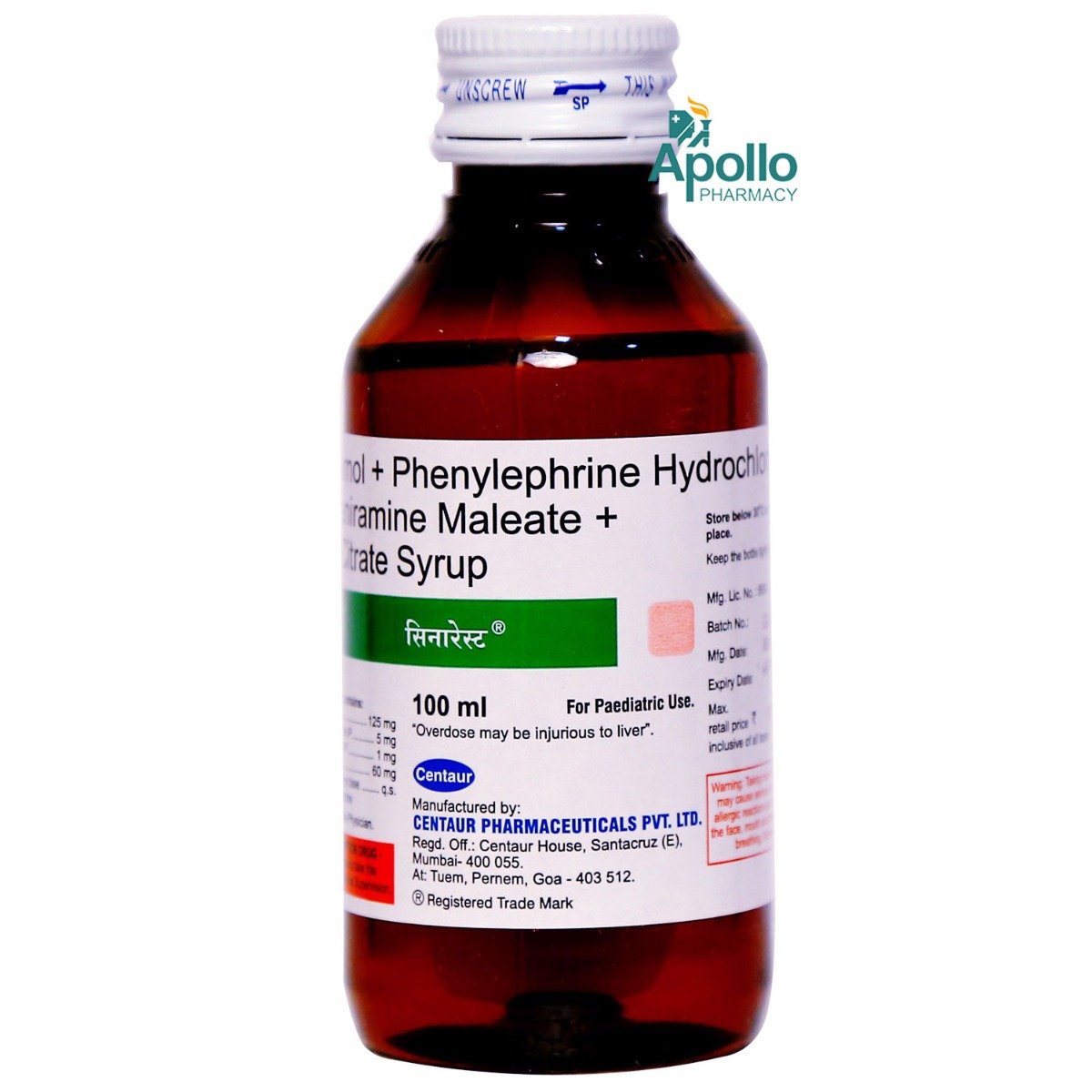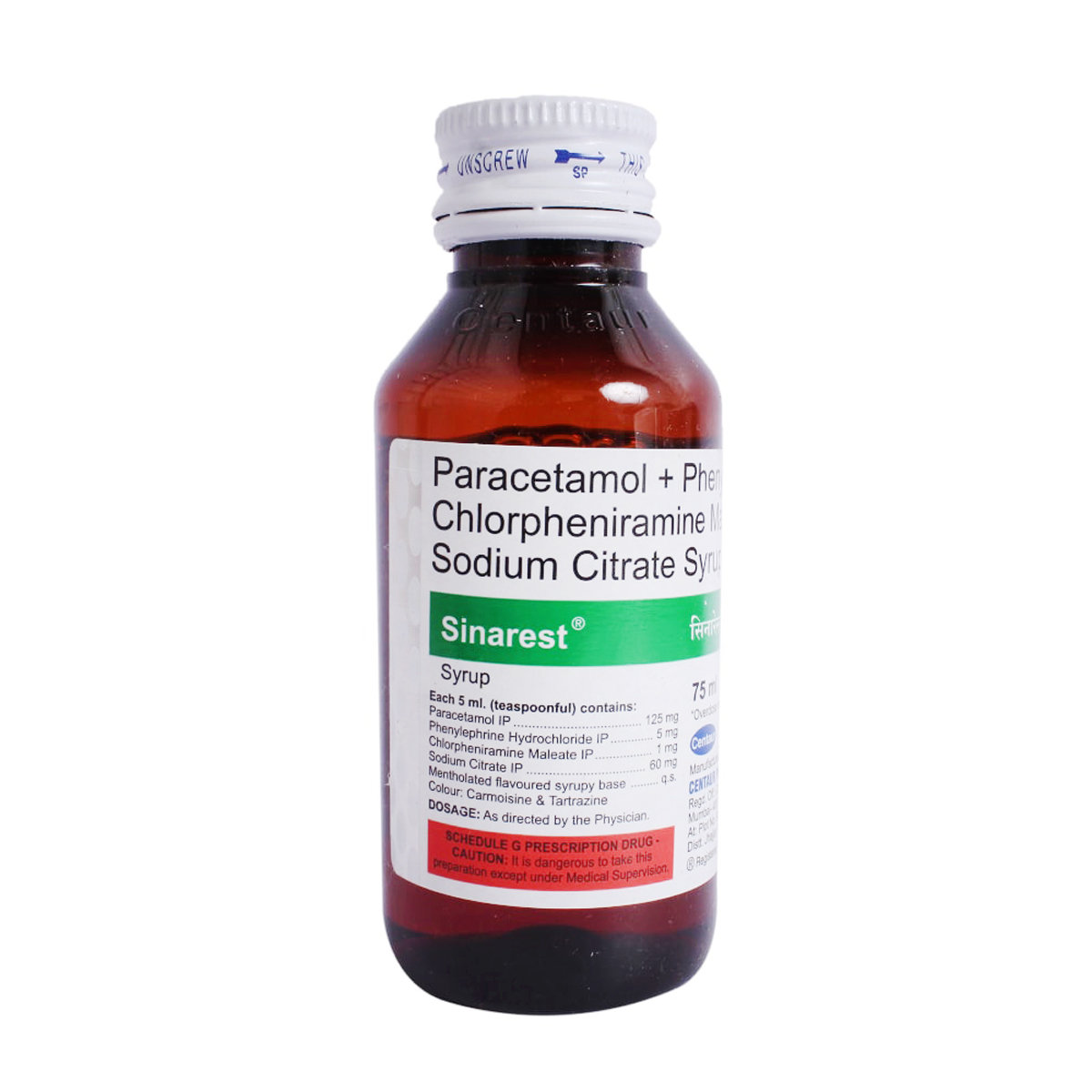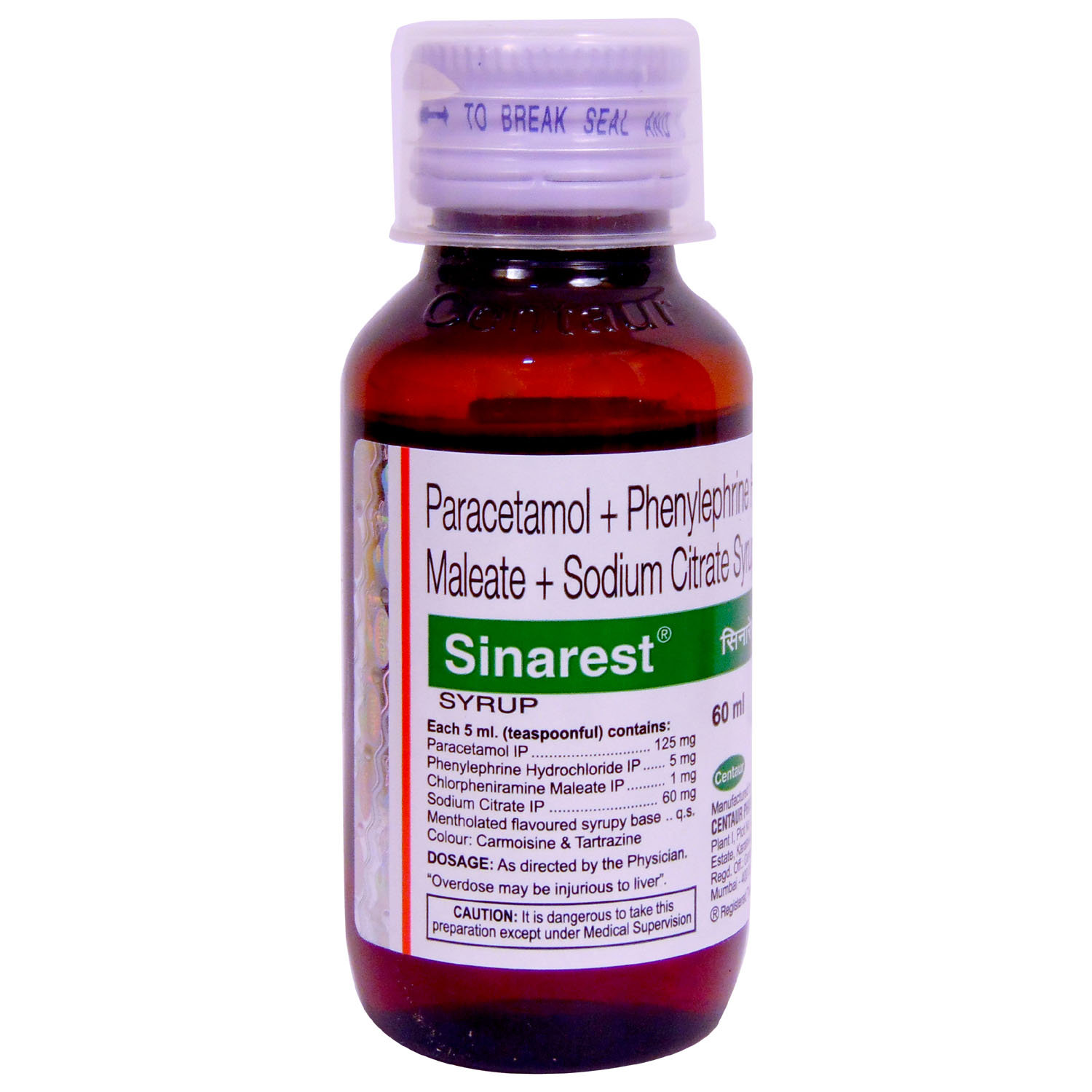Flucol Syrup 60 ml
MRP ₹61.5
(Inclusive of all Taxes)
₹9.2 Cashback (15%)
Provide Delivery Location
Online payment accepted
 Prescription drug
Prescription drugWhats That
Manufacturer/Marketer :
Consume Type :
Expires on or after :
Return Policy :
About Flucol Syrup
Flucol Syrup belongs to a class of medication called 'cough and cold medications' primarily used to treat the common cold like sneezing, watery eyes, or itchy/watery nose and throat. The common cold is a respiratory illness affecting the nose and throat, mostly caused by viruses known as 'rhinovirus.' The virus attacks the body through the mouth, nose, or eyes and spreads quickly through droplets in the air when a person who is sick sneezes, coughs, or talks.
Flucol Syrup is a combination of four different medicines, Chlorpheniramine (anti-histamine), Phenylephrine (decongestant), Paracetamol (mild analgesic and antipyretic), and Sodium Citrate (mucolytic). Chlorpheniramine belongs to the class of antihistamines (anti-allergic drugs) that works by blocking the action of histamine, a substance responsible for causing allergic reactions. Phenylephrine helps in shrinking the blood vessels in the nasal passage, thereby reducing stuffy nose. Paracetamol is an analgesic (relieves pain) and antipyretic (reduces fever) that works by inhibiting the production of certain chemical messengers in the brain known as 'prostaglandins' responsible for pain and fever. Sodium citrate is a mucolytic agent; it helps to loosen mucus, making it easier to cough out.
Take Flucol Syrup as prescribed. Your doctor will recommend how often you take Flucol Syrup based on your medical condition. Some people may experience drowsiness, sleepiness, nausea, fatigue, vomiting, and headache. Everyone doesn't need to experience the above side effects. In some cases, Flucol Syrup may cause a severe allergic skin reaction, probably due to paracetamol, which may disappear in some time.
Inform your doctor if you are pregnant, planning for pregnancy, or breastfeeding before starting Flucol Syrup. If you have high blood pressure (hypertension), liver or kidney disease, coronary artery disease (heart disease), avoid using Flucol Syrup as it may worsen your existing condition and symptom. Consumption of alcohol should be avoided as it may lead to excessive drowsiness and sleepiness. Do not take Flucol Syrup if you have taken any MAO inhibitor (anti-depressant medication like Isocarboxazid, Phenelzine, Selegiline, and Tranylcypromine) in the last 14 days. Phenylephrine present in Flucol Syrup should be used with caution in patients with occlusive vascular disease (nerve/artery blockage), including Raynaud's phenomenon (decreased blood flow to the fingers). Increase in the intake of fluids to keep throat hydrated.
Uses of Flucol Syrup
Directions for Use
Key Benefits
Flucol Syrup is primarily used to treat common cold symptoms. It is a combination of four different medicines, Chlorpheniramine (anti-histamine), Phenylephrine (decongestant), Paracetamol (mild analgesic and antipyretic) and Sodium Citrate (mucolytic). Chlorpheniramine belongs to the class of antihistamines (anti-allergic drugs) that works by blocking the action of histamine, a substance responsible for causing allergic reactions. Phenylephrine helps in shrinking the blood vessels in the nasal passage, thereby reducing stuffy nose. Paracetamol is an analgesic (relieves pain) and antipyretic (reduces fever) that works by inhibiting the production of certain chemical messengers in the brain known as 'prostaglandins' responsible for pain and fever. Sodium citrate is a mucolytic, it helps to loosen mucus, making it easier to cough out.
Storage
Drug Warnings
If you are allergic to Flucol Syrup or any other medicines, please tell your doctor. Inform your doctor if you are pregnant, planning for pregnancy, or breastfeeding before starting Flucol Syrup. If you have high blood pressure (hypertension), liver or kidney disease, coronary artery disease (heart disease), avoid using Flucol Syrup as it may worsen your existing condition and symptom. Consumption of alcohol should be avoided as it may lead to excessive drowsiness and sleepiness. Do not take Flucol Syrup if you have taken any MAO inhibitor (anti-depressant medication like Isocarboxazid, Phenelzine, Selegiline, and Tranylcypromine) in the last 14 days. Phenylephrine present in Flucol Syrup should be used with caution in patients with occlusive vascular disease (nerve/artery blockage), including Raynaud's phenomenon (decreased blood flow to the fingers). Increase in the intake of fluids to keep throat hydrated.
Diet & Lifestyle Advise
- Wash your hands with soap and water regularly to prevent the spread of germs.
- Eat plenty of foods rich in good bacteria like yoghurt to improve overall health.
- Drink plenty of fluids to avoid dehydration and keep the throat lubricated.
- Gargle with salt water for relief from sore throat.
- Avoid alcohol consumption with Flucol Syrup as it may cause tiredness, drowsiness, or lack of concentration.
Side Effects of Flucol Syrup
- Drowsiness
- Sleepiness
- Nausea
- Fatigue
- Vomiting
- Headache
Habit Forming
Therapeutic Class
All Substitutes & Brand Comparisons
RX
Kufma JR Bubble Gum Flavour Syrup 60 ml
Wings Pharmacuticals Pvt Ltd
₹74
(₹1.11/ 1ml)
20% COSTLIERRX
Out of StockSnownil Syrup 60 ml
Maestro Healthcare Ltd
₹75
(₹1.13/ 1ml)
22% COSTLIERRX
Sinarest Syrup 100 ml
Centaur Pharmaceuticals Pvt Ltd
₹146.5
(₹1.32/ 1ml)
43% COSTLIER
FAQs
Drug-Drug Interactions Checker List
- DIPHENHYDRAMINE
- CETIRIZINE
- DULOXETINE
- IMIPRAMINE
- AMITRIPTYLINE
- CLONAZEPAM
- ALPRAZOLAM
- DEXTROMETHORPHAN
- ALBUTEROL
Special Advise
- Avoid alcohol consumption with Flucol Syrup as it may cause tiredness, drowsiness, or lack of concentration.
- Do not take Flucol Syrup if you have taken any MAO inhibitor (anti-depressant medication) in the past 14 days.
Disease/Condition Glossary
Common cold: The common cold is an infection caused by the virus, mainly known as ‘rhinoviruses’ affecting the nose and throat (upper respiratory tract). Children younger than 6 years are at the most significant risk of colds, but healthy adults can also be affected to have 2-3 colds annually. In most cases, cold symptoms are recovered within a week or ten days. However, symptoms might last longer in people who smoke or are exposed to allergens like pollutants, dust, etc. The common cold symptoms include sneezing, sore throat, cough, congestion, mild body pains, low fever, mild headache, feeling unwell, stuffy, or runny nose. In some cases, the discharge from the nose may become thicker and yellow or green, consult your doctor.

Have a query?
Alcohol
Safe if prescribed
You are recommended not to consume alcohol along with Flucol Syrup to avoid excessive drowsiness and sleepiness.
Pregnancy
Consult your doctor
The safety of Flucol Syrup in pregnant women is unknown. Therefore, it is given to pregnant women only if the doctor thinks the benefits outweigh the risks.
Breast Feeding
Consult your doctor
Flucol Syrup is known to pass through milk in small amounts. Use in breastfeeding women is not recommended as it may cause unpleasant side effects to the baby like unusual irritability, excitement.
Driving
Safe if prescribed
Flucol Syrup is known to cause drowsiness, so please do not drive or operate any machinery which requires concentration.
Liver
Consult your doctor
Take Flucol Syrup with caution, especially if you have a history of Liver diseases/conditions. The dose may be adjusted by your doctor as required.
Kidney
Consult your doctor
Take Flucol Syrup with caution, especially if you have a history of Kidney diseases/conditions. The dose may be adjusted by your doctor as required.
Children
Safe if prescribed
Flucol Syrup is not recommended for children below 2 years. However, it can be given to children more than 2 years of age only if the doctor has prescribed it.








